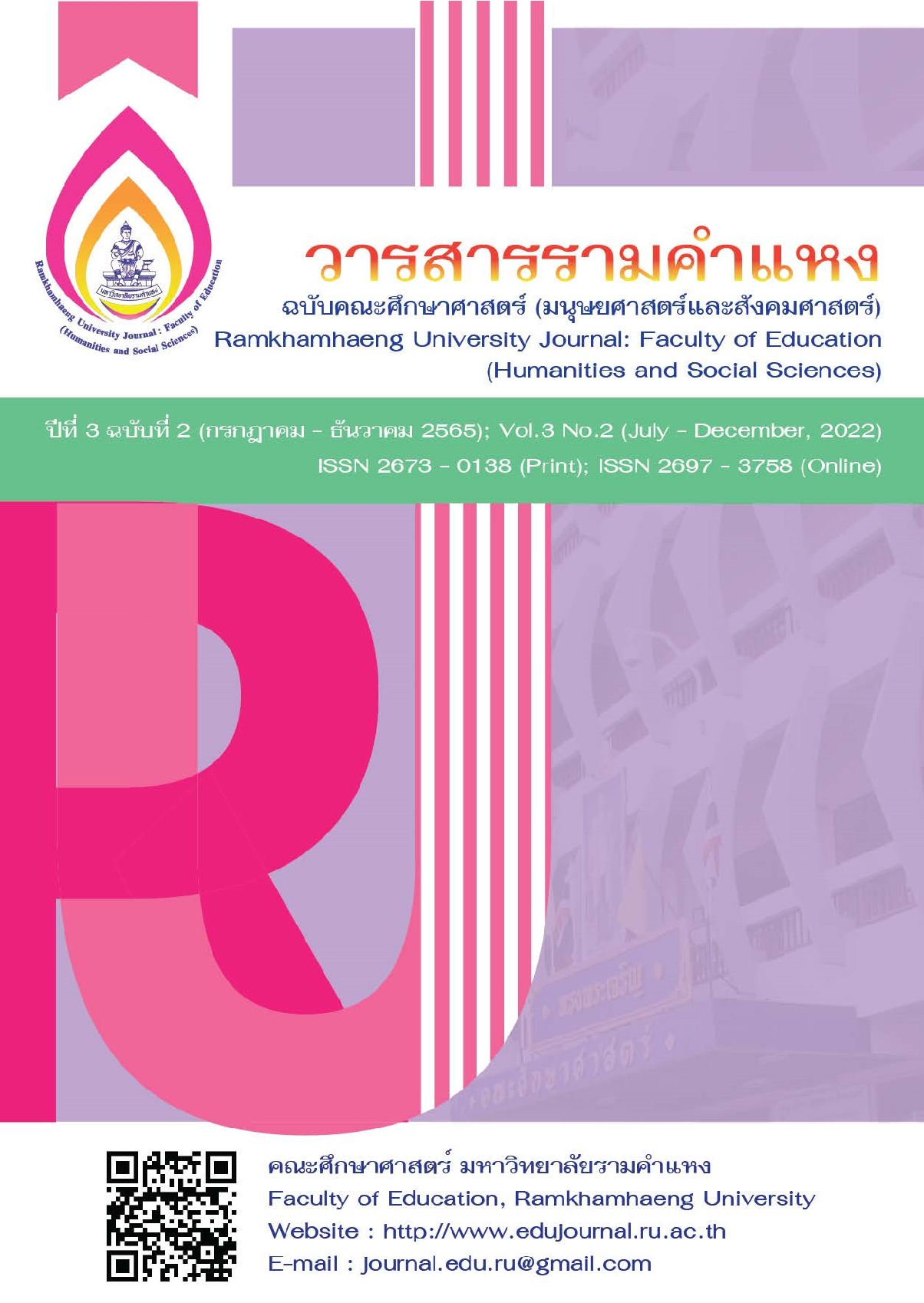Learning Management with Steam Education on the Simple Electric Circuits Lesson for Elementaty Students
Main Article Content
Abstract
The simple electric circuits lesson adopted interdisciplinary integration with STEAM teaching approach. This approach facilitates changes in learning process by combining phenomenal incidents and certain teaching methods of varying subjects. Learners will gain benefits from the STEAM approach, as they are able apply knowledge in different subjects to solve problems in real life. Moreover, they will take action and develop skills through their learning, encouraging them to have interest in learning, enthusiasm in seeking answers by themselves, and ability in apply integrated essential skills for uses in their daily lives. Learning management in STEAM adopted six steps of STEAM approach stated by the Institute for the Promotion of Teaching Science and Technology (IPST, 2015), which are problem identification, related information search, solution design, planning and development, testing, evaluation, design improvement, and presentation. The steps will allow learners to study and construct knowledge by themselves through problem-solving processes. Student will also be engaged in fact-finding and answer-finding processes leading them to reasoning information and evidence. Additionally, students will have a chance to develop scientific skills and 21st century skills, such as collaborative problem solving, communication, and creativity.
Downloads
Article Details

This work is licensed under a Creative Commons Attribution-NonCommercial-NoDerivatives 4.0 International License.
ผู้ส่งบทความ (และคณะผู้วิจัยทุกคน) ตระหนักและปฎิบัติตามจริยธรรมการวิจัยอย่างเคร่งครัด ทั้งนี้บทความ เนื้อหา ข้อมูล ข้อความ ภาพ ตาราง แผนภาพ แผนผัง หรือข้อคิดเห็นใดๆ ที่ปรากฎในบทความ เป็นความคิดเห็นและความรับผิดชอบของผู้ส่งบทความ กองบรรณาธิการไม่จำเป็นต้องเห็นตามเสมอไป และไม่มีส่วนรับผิดชอบใดๆ โดยถือเป็นความรับผิดของของเจ้าของบทความเพียงผู้เดียว
References
Herro, D., Quigley, C., Andrews, J., & Delacruz, G. (2017). Co-Measure: Developing an assessment for student collaboration in STEAM activities. International Journal of STEM Education, 4(26), 1-12.
Israsena, C. (2010). Development the group of prepares the readiness in mathematics side for students’ first pre-kindergarten level about “Counting” Chiang Mai rajabhat university’s demonstration school. Master Thesis, Chiang Mai Rajabhat University]. http://cmruir.cmru.ac.th/handle/123456789/690 (in Thai).
Issanapong, S., Chaiprasert.P., & Singlop, S. (2021) . STEAM education approach on learning achievement, scientific creativity and attitude toward chemistry for grade 10 students. MBU Education Journal: Faculty of Education Mahama, 3(2), 177-188. (in Thai).
Kongsilp, N. (2018). The development an elementary curriculum for global learning by using STEAM. Journal of Industrial Education, 12(2), 46-56. (in Thai).
Noiwong, W., & Wongthong, P. (2020). Learning activity based on STEAM education that emphasizes engineering design process in topic of hydroponics for enhancing 21st century skills of upper elementary school students. Journal of Science and Science Education, 3(2), 177-188. (in Thai).
Office of the Basic Education Commission. (2017). Indicators and learning content of the core curriculum of basic education. The Agricultural Cooperative Federation of Thailand. (In Thai).
Office of the Education Council. (2017). National Education Plan (2017-2036).
Prikwarn graphic. (In Thai). The Institute for the Promotion of Teaching Science and Technology (IPST). (2015) Introduction to STEM Education. OTEP Ladprao. (In Thai).
Orapiriyakul, S. (2019) . STEAM EDUCATION: Innovative education integrated into learning management. Journal of Research and Curriculum Development, 9(1), 1-15. (in Thai).
Perignat , E., & Katz-Buonincontro, J. (2019). STEAM in practice and research: An integrative literature review. Thinking Skills and Creativity, 31, 31-43.
Rattanahiran, T. (2019). Learning management by stem education to develop science process skill and task creative ability for seventh grand student. Master Thesis, Silpakorn University. http://ithesis-ir.su.ac.th/dspace/bitstream/123456789/2734/1/59253404.pdf (in Thai).
Wongthong, P. (2019). Effect of integrated learning activities based on STEAM education on science learning achievement, critical thinking skills and students’ satisfaction of grade 4 students. J. Res. Unit Sci. Technol. Environ. Learning, 10(1), 64-110. (in Thai).
Yakman, G. (2018) . STEAM education: An overview of creating a model of integrative education. Master Thesis, Virginia Polytechnic and State University. https://www.researchgate.net/publication/327351326_STEAM_Education_an_overview_of_creating_a_model_of_integrative_education.


